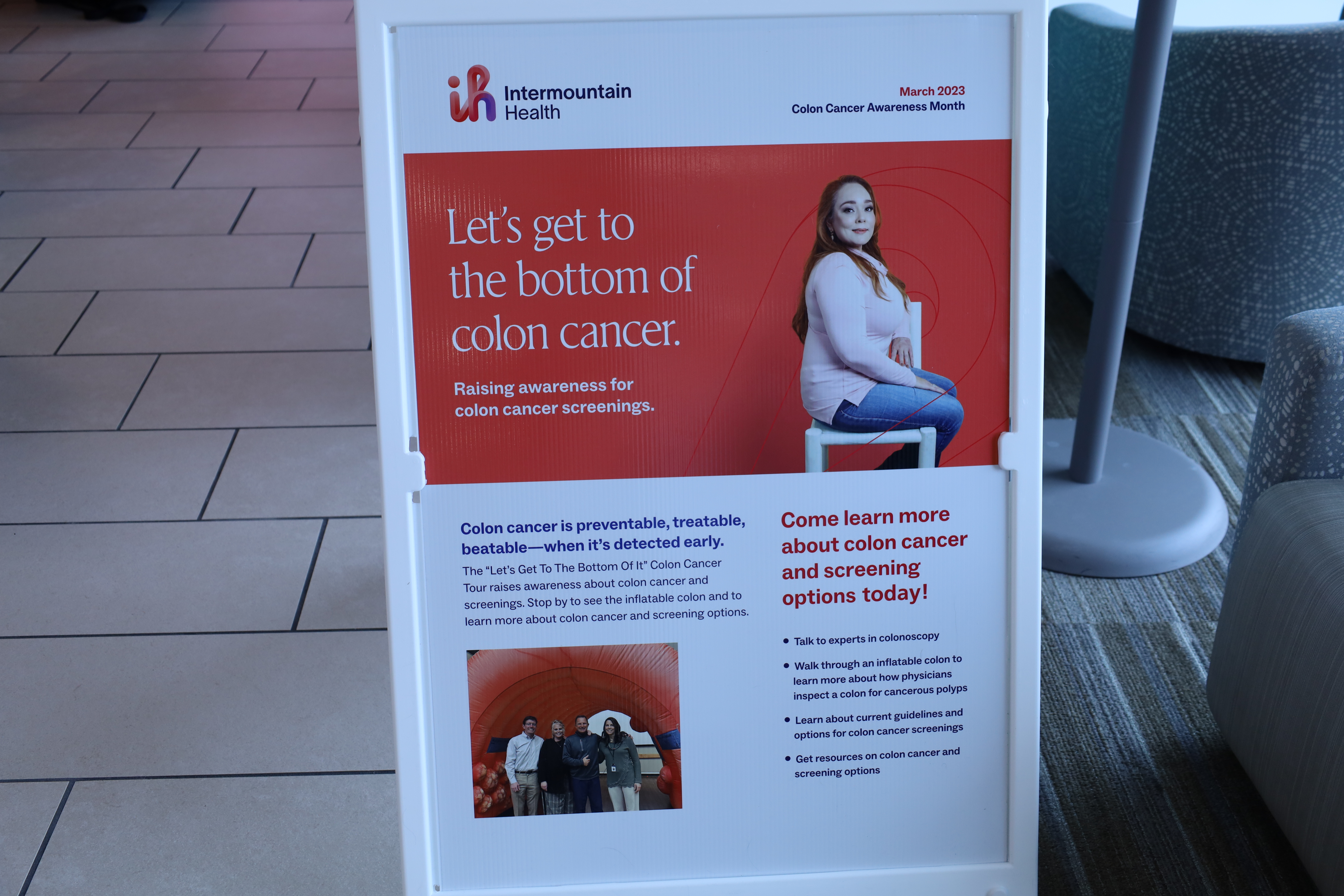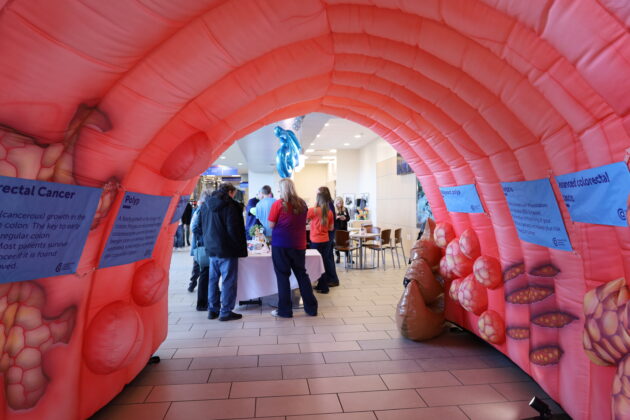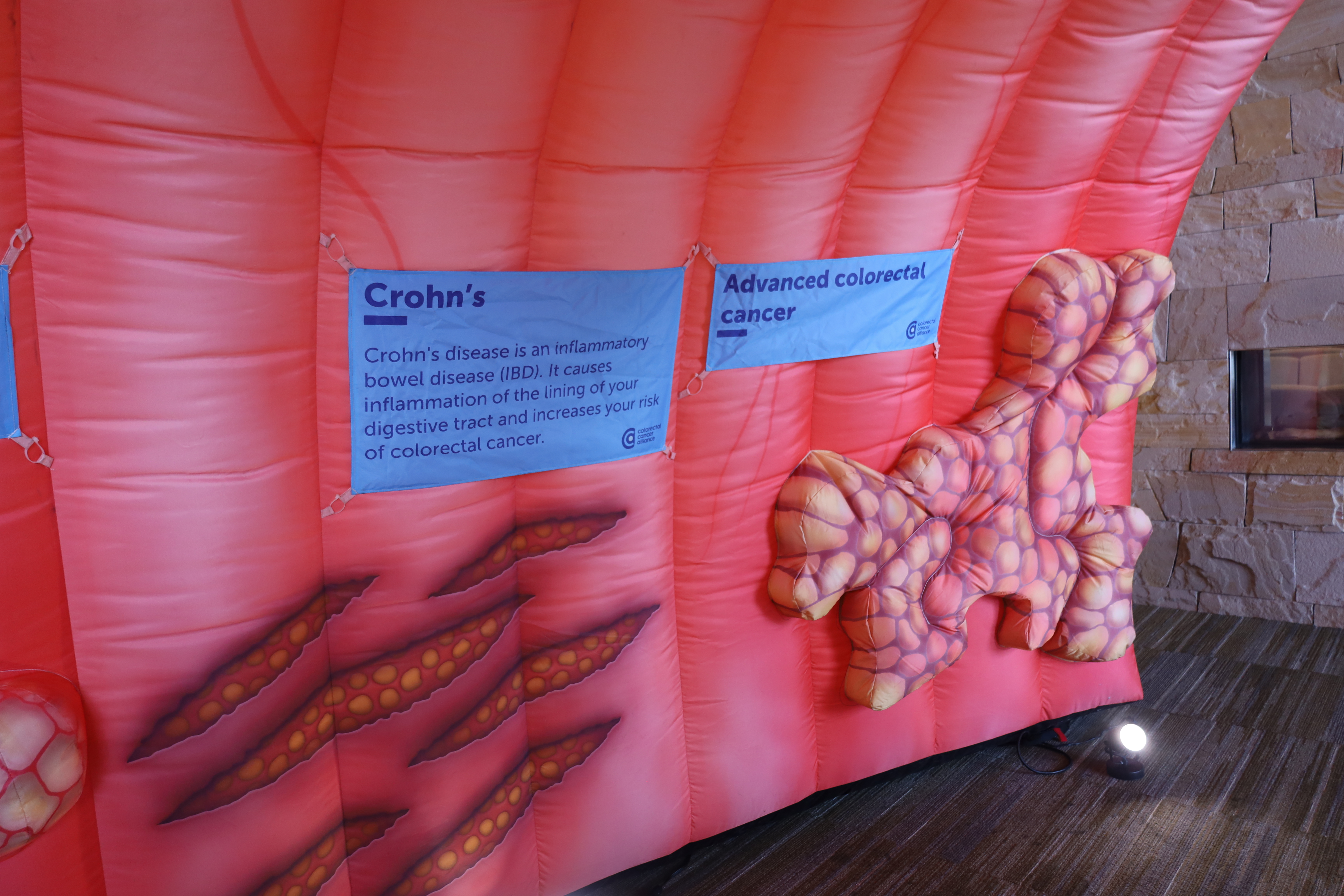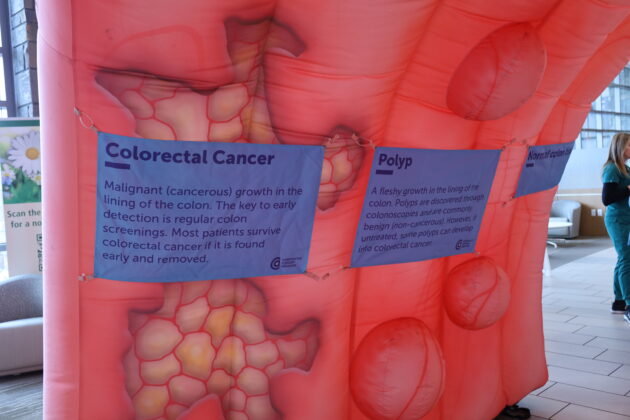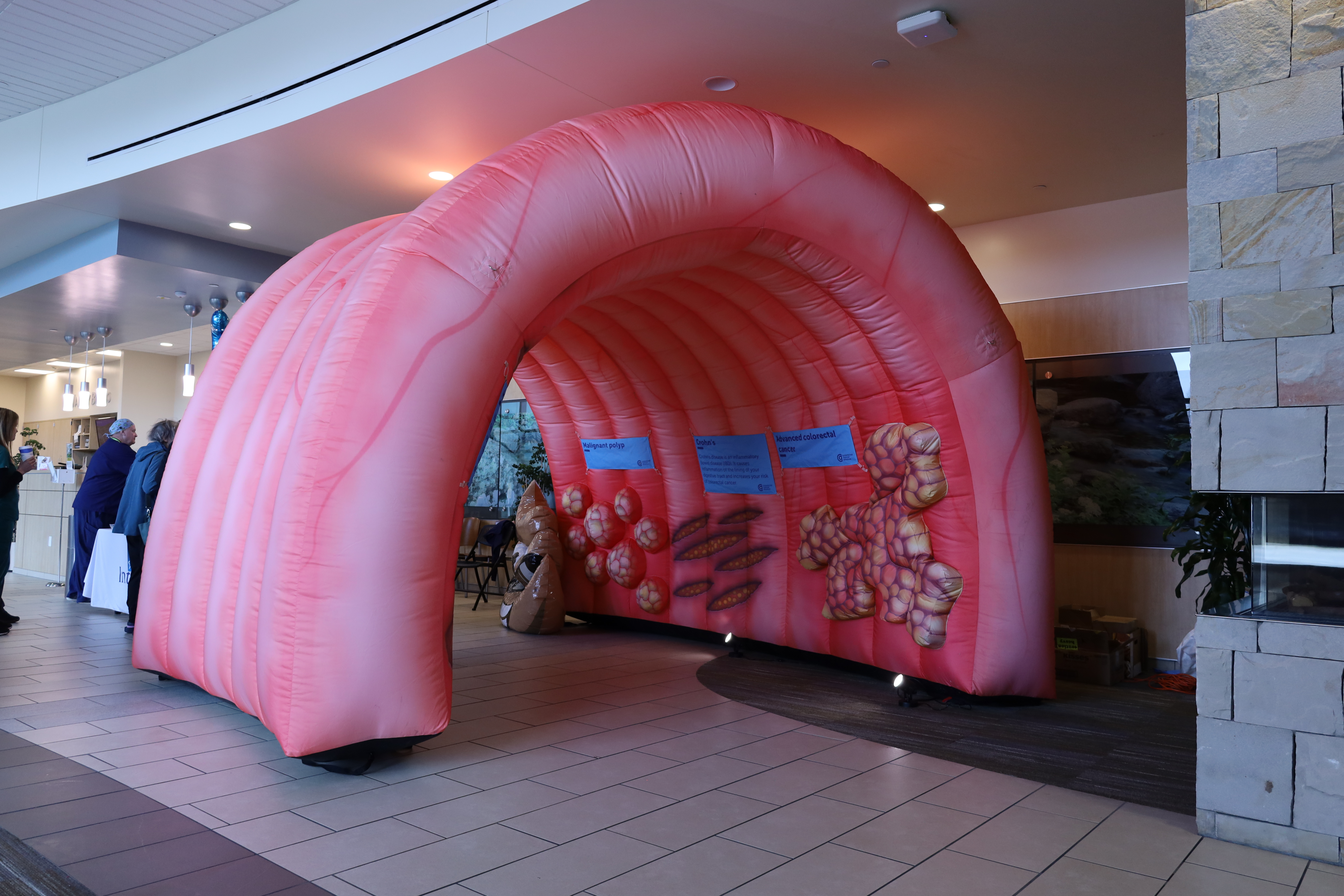
Utah Valley Hospital displayed a giant inflatable colon for Colorectal Cancer Awareness month as part of a month-long tour.
The tour has gone to 16 hospitals in Utah, starting with St. George and working its way up north, and will visit six more in the next week and a half, finishing in Meridian, Idaho. Intermountain Health is hosting the tour to promote screenings for colon cancer starting at age 45 and stars a 12-foot, 113-pound inflatable colon that visitors can walk through.
Director of Clinical Operations for Endoscopy at Intermountain Health Lori Smit said the highlight has been interacting with the community and hearing people’s stories.
“People are asking, ‘what is this for?’ and then they tell me their story and, ‘I have a son that needs to come in,’ and things like that so it’s really meaningful,” Smit said.
Smit has been at each site the tour has visited and helped haul the inflatable in the back of her truck from site to site. She said even though it is a lot of work, it is “powerful” to interact with the communities.
“We’re definitely making a difference across the state so far,” Smit said.
Gastroenterologist Dr. Kurt Bodily, MD, explained that colon cancer is a cancer that arises in the lining of the colon through growths called polyps and is extremely common. He said it is important for people to know that the only way to detect colon cancer is through a colonoscopy, and that the age of screening used to be 50 but has been lowered to 45.
“Many of the risk factors for colon cancer that you can control are the same ones that make other aspects of your life better: eat healthy, exercise regularly, maintain a good diet,” he said.
The American Cancer Society shows that, “colorectal cancer is the third most common cancer diagnosed in both men and women in the United States” and predicts over 100,000 new cases of colon cancer just in 2023.
Eagle Mountain resident Richard Erickson, 59, emphasized the importance of genetics in colon cancer.
Erickson said he knew he had family history of colon cancer but thought it would not happen to him and did not get a colonoscopy until he was 57. Now he wants everyone to know that they should just go get screened.
“This situation could have been averted if I had listened to the things that my body was trying to tell me,” Erickson said.
Erickson said he regrets not going to get screened much earlier and wants others to learn from his experience. However, he has seen miracles throughout his surgeries and chemotherapy in how his family and healthcare team has rallied around him and special moments that he didn’t know if he would get to see, like the birth of his first grandchild.
“Miracles happen even if life happens in a way you weren’t expecting,” he said.
Dr. Bodily said symptoms for colon cancer can include bleeding, unexpected weight loss, change in bowel habits and abdominal pain. He also said that even if college age students do not have to worry about colonoscopies yet, they should make sure that their parents are getting screened.
“Speak up about your symptoms, we’re seeing it in even younger and younger people,” Smit said.

